Tobago hunter turns conservationist, opens wildlife park
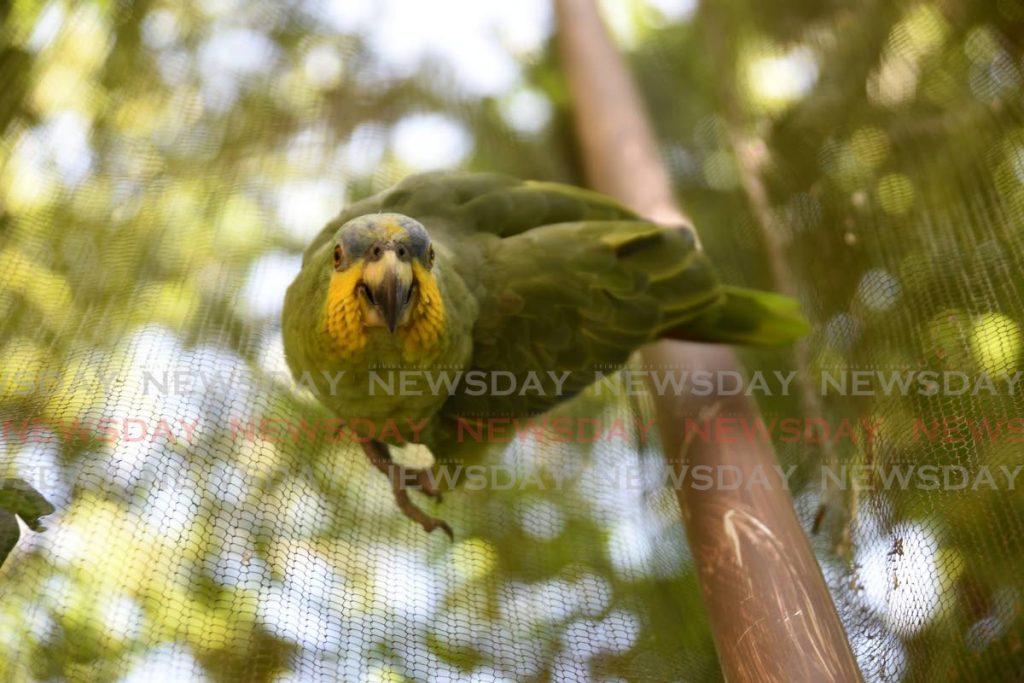
At the Corbin Local Wildlife Park in Mason Hall, Tobago, rescued animals are nursed back to health and endangered animals are bred in conservation programmes.
In total, over ten species of animals are offered refuge at the park.
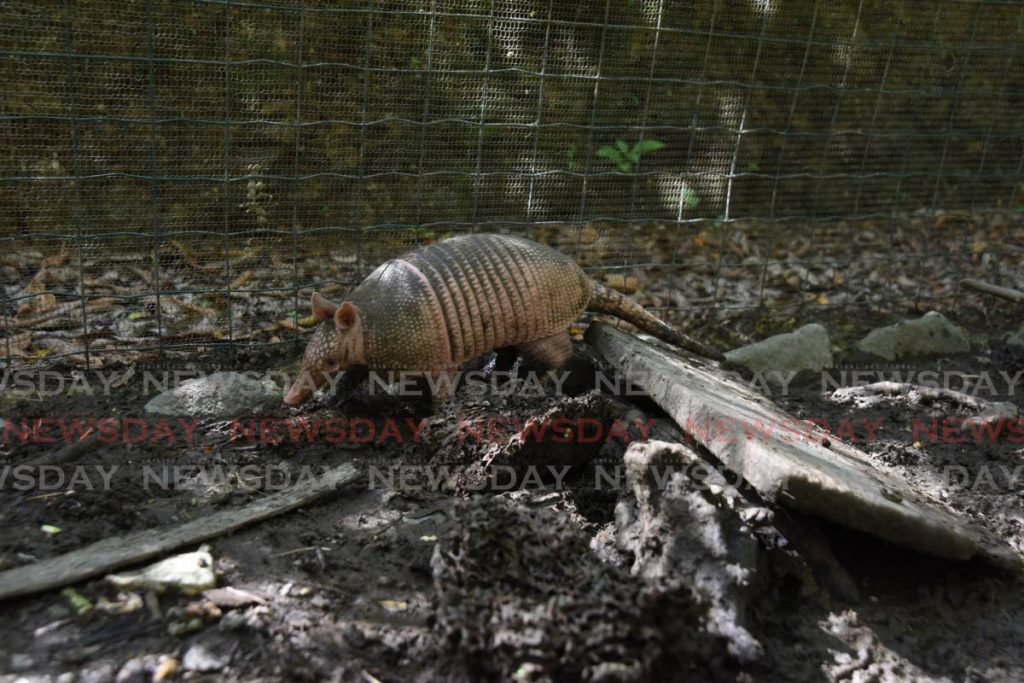
But the animals kept at the park aren’t the only ones who call it their home. With the park occupying an estimated 20 acres of forestland, over 62 species of birds have been sighted on the park’s grounds.
The park’s caretaker and tour guide, Michael Corbin, recently spoke with Newsday about the park’s conservation efforts.
“We hope to get the population of Tobago’s wildlife back to a balance. We also want to educate the upcoming generation on Tobago’s wildlife.
“The main way we educate people is by the tours. With the tour, people get to see the animals in their natural habitat, get information on them and understand the importance of the animals in the forest.”
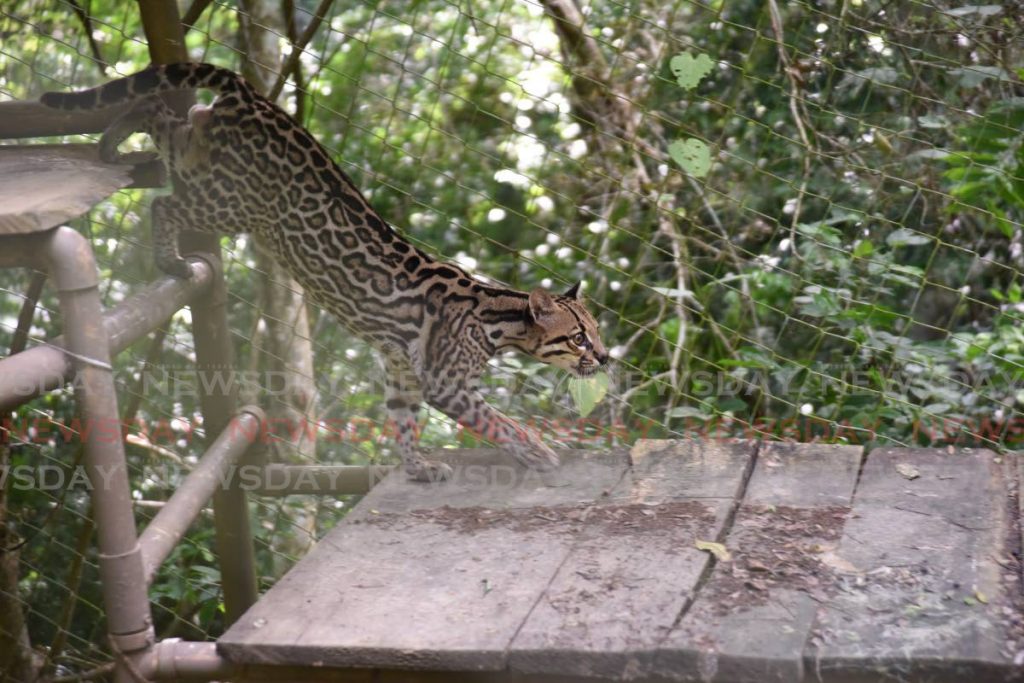
Corbin’s father, Roy Corbin, started work on the park in 2011, after being a hunter for most of his life.
What changed his father's mindset from killing to conserving?
Corbin explained, “For a good portion of his life, he used to hunt a majority of the wildlife we had in Tobago.
“After a while, he noticed a lot of the animals started disappearing as he was seeing less of them. After noticing this, he said he was not going to hunt any more.”
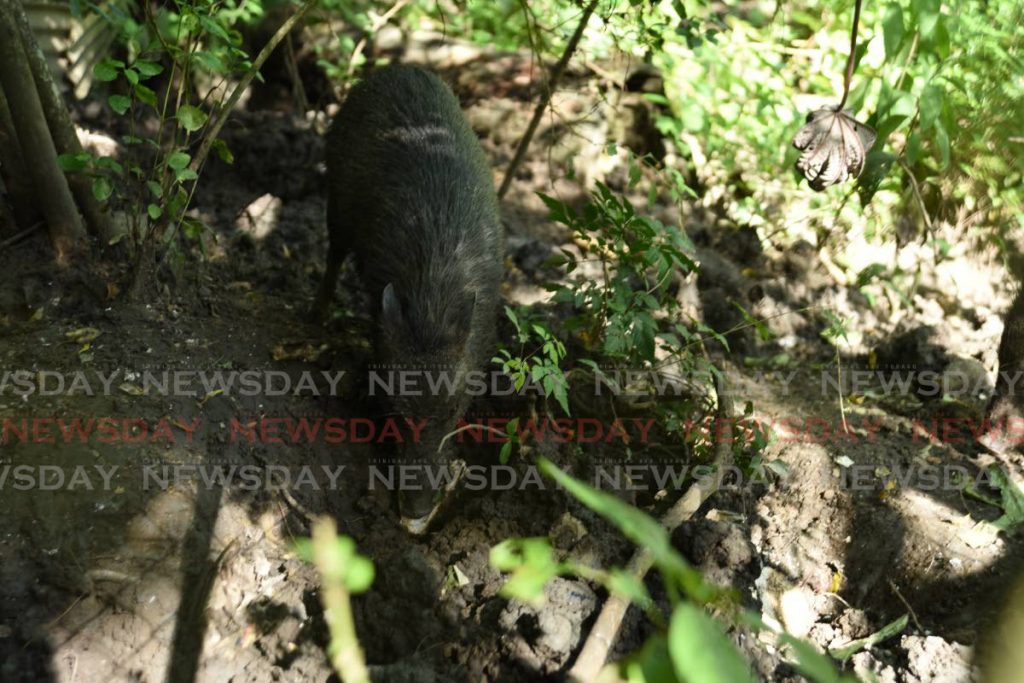
In creating the park, Roy wanted to conserve Tobago’s wildlife, which was declining because of overhunting and deforestation.
To open the park, Roy trained as a tour guide and worked with environmentalists Ian and Lynn Wright.
The park was built a stone’s throw away from Roy’s home, on his land.
“We started work on the park in 2011 by building enclosures, getting rescued animals, and doing some small tours. But in 2015, we officially opened to the public.”
The park’s first inhabitants were several manicous. But since then, the variety of animal species has noticeably expanded.
Now calling the park home are: manicous, boa constrictors (macajuel), brown tree boas (cascabel), tatous (nine-banded armadillos), orange-winged parrots, red squirrels, agoutis, green iguanas, golden tegu (sally painters), caimans and quenk.
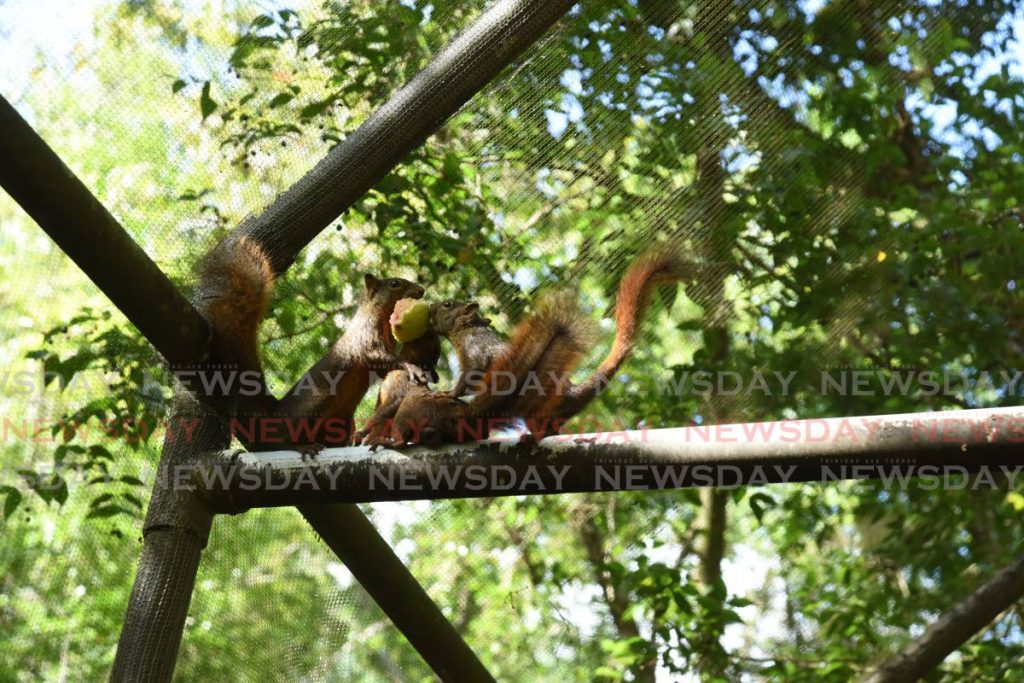
Also planted in the park are a number of fruit trees and flowering plants like plantains, sugar cane, mango trees and wild heliconia.
“We don’t take animals from the wild (for the park).
“Any time we get animals, they would be damaged or animals that were rescued from a residential area.”
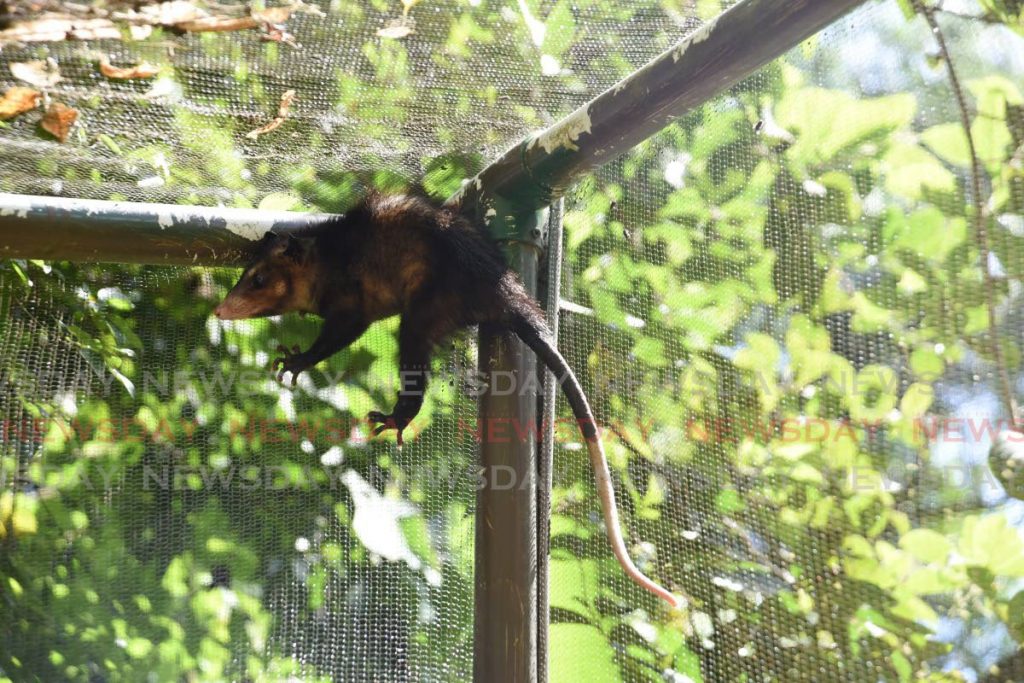
The park’s conservation breeding programme is currently being done in collaboration with the El Socorro Wildlife Centre in Freeport. In some instances, the El Socorro Wildlife Centre provides the park with species of animals to breed to repopulate Tobago.
“We do work a lot with the El Socorro Centre as we are looking at bringing back some of the animals in Tobago that are endangered.
“Currently, on the island, we have an overhunting problem, which is a reason animals are disappearing. A lot the animals are not getting a chance to breed or grow to a proper age.”
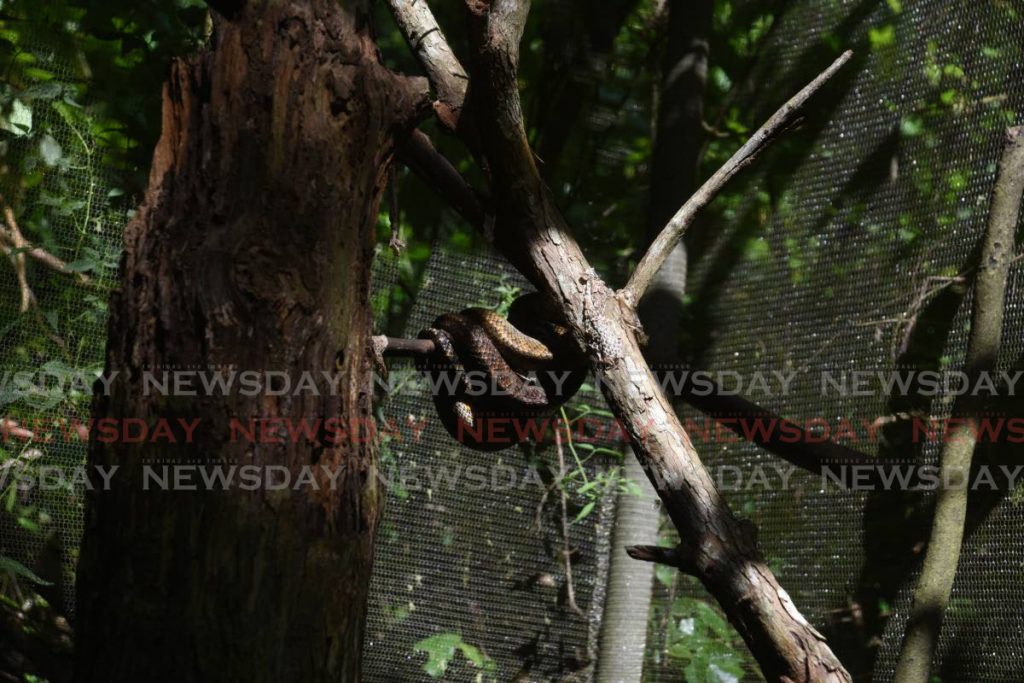
While Corbin and his father continue to dedicate their time and effort to the park, Corbin acknowledges it is challenging at times. Covid19 has not made running the park easier.
“Volunteers used to come out and help in different areas. Some would help clean the park and enclosures.”
Now only he and his father maintain the park.
Volunteering isn’t the only thing covid19 has affected.
“Tours of the park helped with anything financial. But with covid19, we barely have tours. It’s on the edge of being challenging. Most of our income would have come from foreign tourists and also we would normally get school tours. But with the schools being closed, that’s been keeping us back.”
While still accommodating small tours, in keeping with covid19 restrictions, Corbin said the tours aren’t as profitable as they used to be.
Farmers also used to donate excess produce from harvests to feed the animals, but this too has changed. With covid19 affecting everyone financially the farmers have cut back on donations.
Despite the challenges, the work goes on.
“We have been posting pictures and videos of the animals on social media. This is to make sure that people know the park is still here.”
In an effort to innovate to meet the covid19 challenge, Corbin said they are in the planning stages of doing virtual tours. The park has also started a GoFundMe drive.
“From the beginning to now, we have not received any government funding or funding of any other kind. Everything has been from our pockets, tours and donations. So without those things, we would not have been able to reach where we have today.”
Like his father, Corbin said, other hunters have visited the wildlife park and gained a greater appreciation of the animals.
“We do have hunters or their families coming to the park. When the tour is over, most hunters normally say they didn’t know about some of the stuff we teach them. They then say, maybe they shouldn’t hunt or eat certain animals.”
Corbin said it may not be in everyone’s interest for there to be a total ban on hunting, given its financial incentives. But he said it is important for people to learn more about sustainable behaviours that can protect animals so they can be around for longer.
In creating a sustainable balance, Corbin said people would realise protecting animals can be mutually beneficial to both the environment and humans.
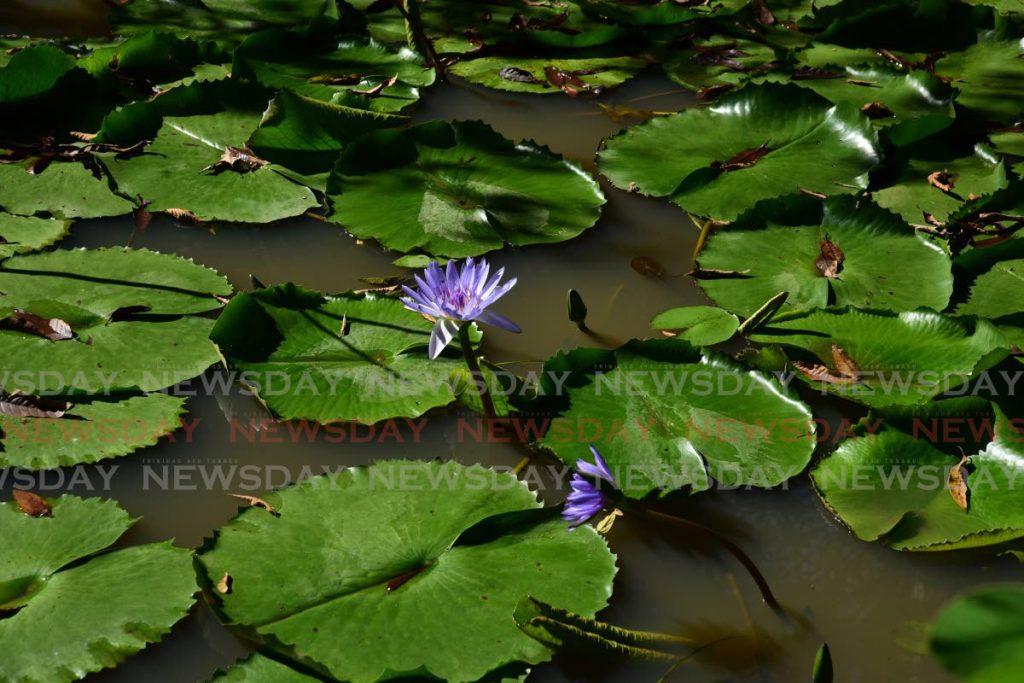
In TT’s fifth national report to the Convention on Biological Diversity, it was noted that a two-year hunting ban had been imposed in response to concerns of overhunting.
After the ban took effect, the report referenced a three-year study which began in 2014 to assess the effect of hunting on TT’s five most popular game species: the: lappe, red-rumped agouti, the tatou, the red brocket deer and the wild-hog (quenk).
One year into the study, in 2015, three wild-hogs, three lappe, five tatous, 67 deer and 271 agoutis were sighted. The preliminary results of the survey suggested most of the five most hunted species were affected by the pressures of hunting.
People interested in donating to the park can find more information on its website: tobagowildlife.com or call 327-4182.

Comments
"Tobago hunter turns conservationist, opens wildlife park"